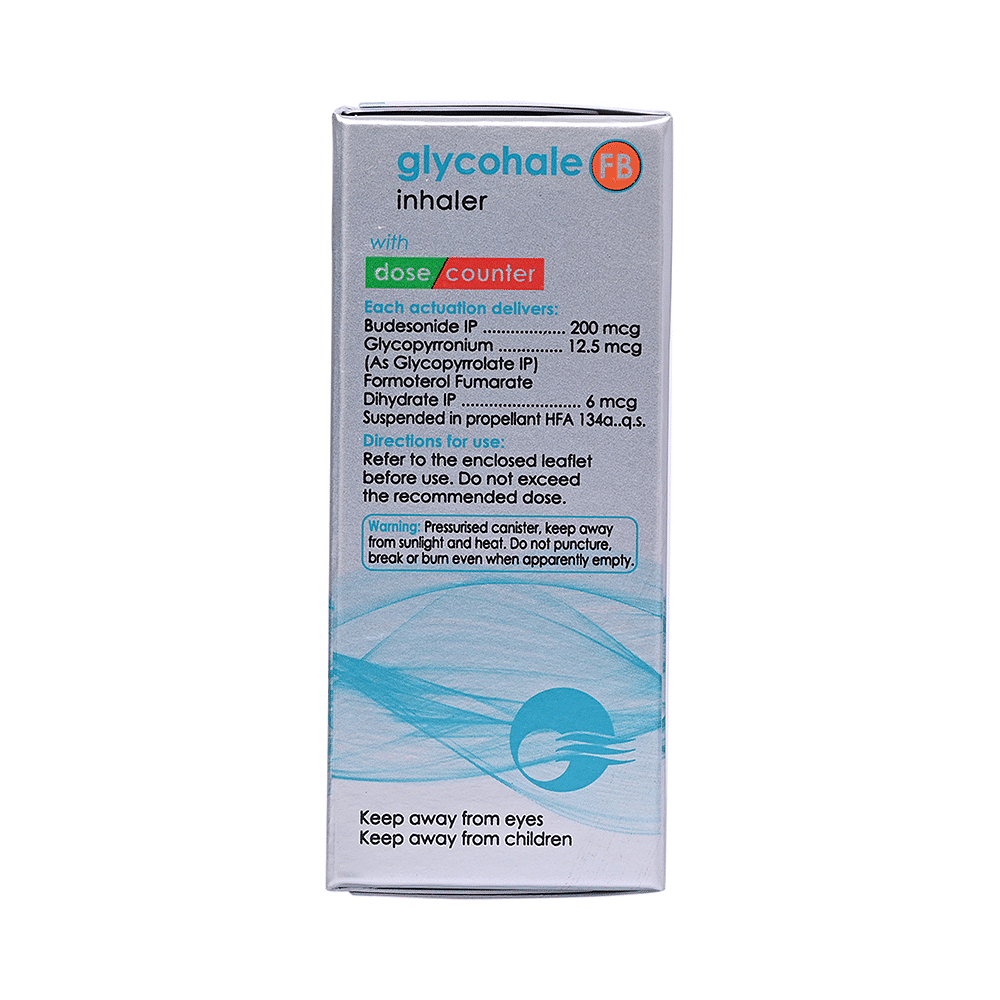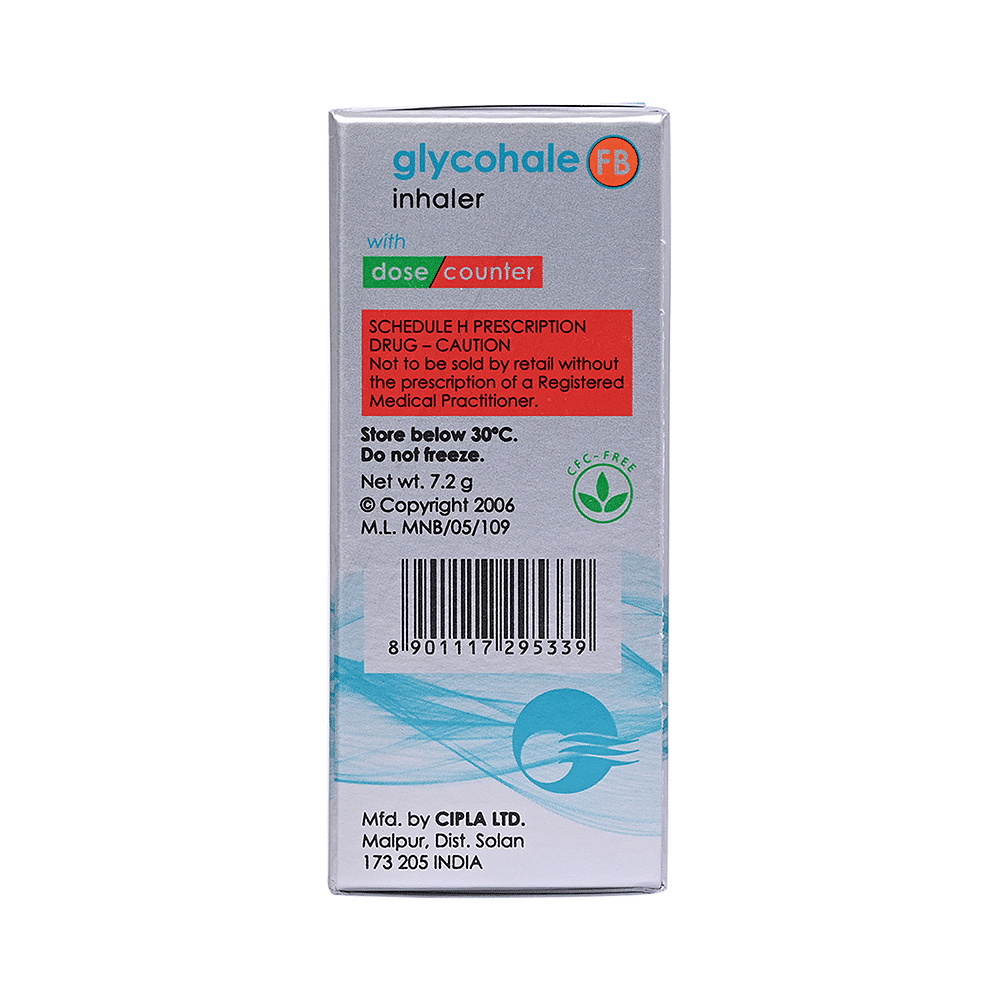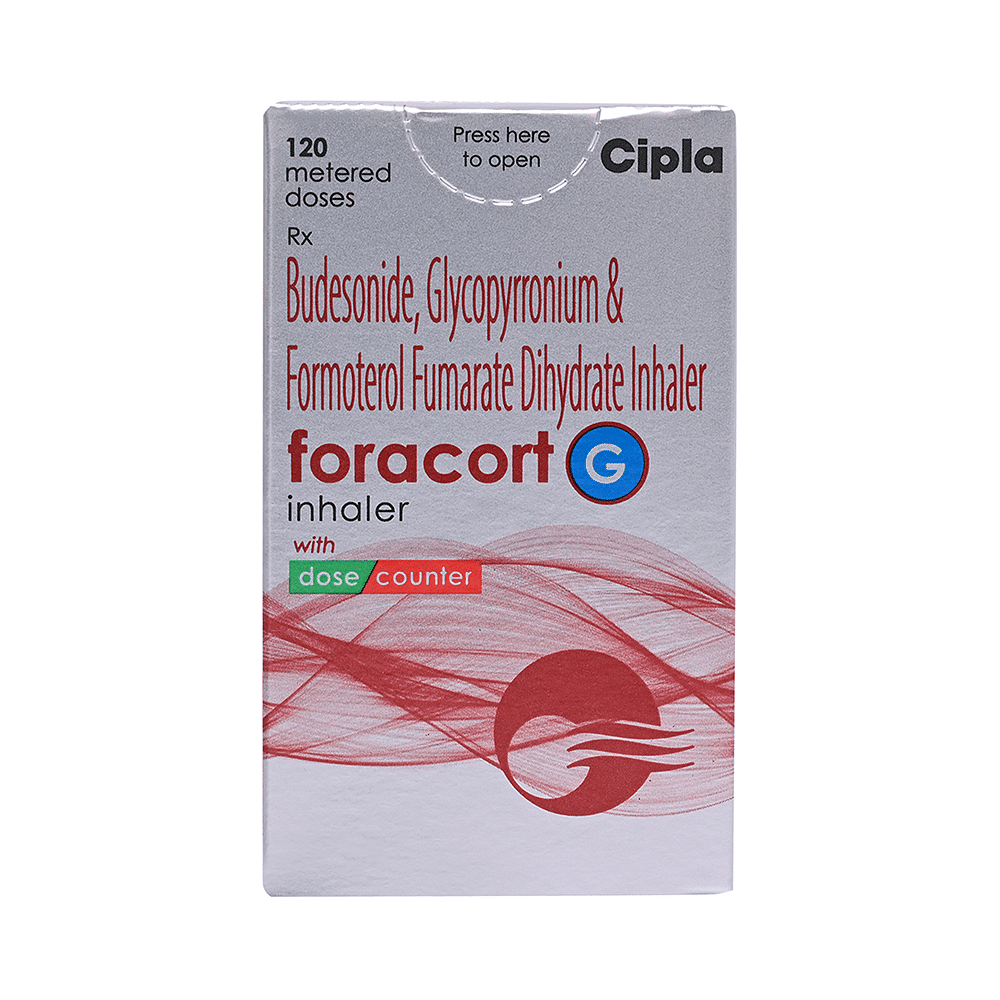


Glycohale FB Inhaler
Salt Composition
Glycopyrrolate (12.5mcg) + Formoterol (6mcg) + Budesonide (200mcg)
Key Information
Short Description
Glycohale FB Inhaler is a combination of three medicines used to treat chronic obstructive pulmonary disease (COPD).
Dosage Form
Inhaler
Introduction
Glycohale FB Inhaler is a combination of three medicines: Glycopyrrolate, Formoterol, and Budesonide. It works in various ways and reduces the symptoms of COPD such as coughing, chest tightness, and shortness of breath.
Directions for Use
Check the label for directions before use. Shake the inhaler. While you are breathing in from mouth, press down on the inhaler one time to release the medication and hold your breath for 10 seconds. Repeat until you have inhaled the number of puffs as suggested by the doctor. Afterwards, rinse your mouth thoroughly with water and spit it out.
Safety Information
Side Effects
No common side effects listed.
How it works
Glycohale FB Inhaler is a combination of three medicines: Glycopyrrolate, Formoterol, and Budesonide. Glycopyrrolate is an anticholinergic medication that works by blocking the activity of a chemical messenger (acetylcholine) in the brain. Formoterol is a bronchodilator that works by relaxing the muscles in the airways and widens airways. This makes breathing easier. Budesonide is a steroid that works by blocking the production of certain chemical messengers in the body that cause inflammation (redness and swelling) and allergies.
Quick Tips
You have been prescribed Glycohale FB Inhaler for the treatment of chronic obstructive pulmonary disease (COPD). If at any time your breathing gets worse, please contact your doctor or nurse for advice straightaway. Gargle with warm water after each inhalation to avoid any fungal infections in your mouth and throat. Do not smoke. Smoking causes irritation and damage to the lungs and will make your condition worse. If you have diabetes you may need to check your blood glucose more frequently as Glycohale FB Inhaler can affect the levels of sugar in your blood. Your doctor will advise you about this.
Related Medicines



